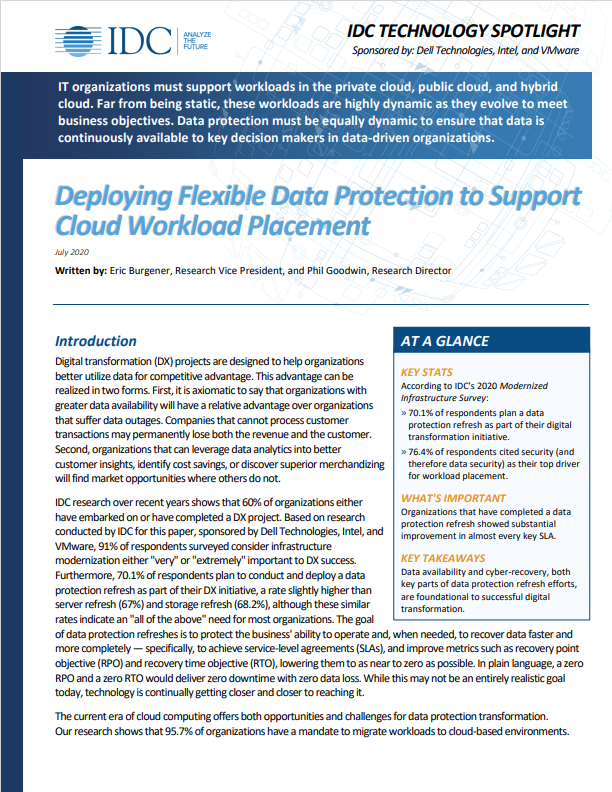Patch finally released for Spring4Shell zero-day after vulnerable businesses put on high alert
With proof-of-concept code out in the wild, businesses are encouraged to assess their exposure to what's being dubbed 'Log4Shell 2.0'


Spring has released an update to its core framework that is thought to bring with it a security fix for the Spring4Shell zero-day discovered this week.
The maintainer of the widely used open source Java framework announced the fix was available on Thursday afternoon after businesses scrambled to assess their exposure to the newly discovered zero-day, for which there were already publicly available proof-of-concept (PoC) exploits.
The latest version, dubbed 5.3.18, can be downloaded now and early reports from experts suggest the security fix is working. Businesses are recommended to upgrade to the latest version to avoid falling victim to the remote code execution (RCE) flaw.
"[I] quickly tested Spring Framework's 5.3.18 release and it does stop the original PoC," said security researcher Jacob Baines. "Obviously, need to spend some time looking at their changes, but a good start."
A backported fix for Spring4Shell is also included in Spring's 5.2.20 version update which is also available now. The community is still waiting for a CVE tracking code.
What is Spring4Shell?
Businesses were left exposed this week to a zero-day security vulnerability branded ‘Spring4Shell’ while PoC exploits proliferated in the public domain.
Spring4Shell is a zero-day vulnerability found in the popular Spring Core Framework for Java applications, that could be exploited for remote code execution (RCE) attacks on affected machines.
Get the ITPro daily newsletter
Sign up today and you will receive a free copy of our Future Focus 2025 report - the leading guidance on AI, cybersecurity and other IT challenges as per 700+ senior executives
The open source Spring Core Framework is one of the most popular Java Enterprise Edition frameworks and offers features to create high-performance Java applications. All Spring Core Framework versions running JDK 9 and newer are thought to be vulnerable.
The flaw has been compared to the Log4Shell vulnerability affecting the log4j2 Java logging utility, but the two are unrelated. Spring4Shell can also only be exploited if a number of prerequisites are met, according to security researcher Will Dormann, unlike Log4Shell which affected all versions of log4j2.
RELATED RESOURCE

Deploying flexible data protection to support cloud workload placement
Why data availability and cyber recovery are foundational to successful digital transformation
All vulnerable versions of the Spring Core Framework also use Spring Beans, he said - a complex component of the framework that involves a project’s supporting objects, Spring Parameter Binding, and Spring Parameter Binding must also be configured using a non-basic parameter type such as POJOs.
Cyber security company Tenable said it’s unclear how common these prerequisites are in real-world applications, but they are necessary for exploitation and there is evidence of PoCs already.
“In certain configurations, exploitation of this issue is straightforward, as it only requires an attacker to send a crafted HTTP request to a vulnerable system,” said Praetorian, one of the first security companies to confirm the vulnerability, in a blog post. “However, exploitation of different configurations will require the attacker to do additional research to find payloads that will be effective.
“This vulnerability allows an unauthenticated attacker to execute arbitrary code on the target system.”
Praetorian also said the vulnerability is effective since it bypasses a previous patch made nearly 12 years ago for CVE-2010-1622, a separate code injection vulnerability in the Spring Core Framework.
Some members of the security community have been confusing two separate Spring vulnerabilities. This week's Spring4Shell and CVE-2022-22963 are entirely separate, the latter being a flaw in the Spring Cloud Function, which was patched on 29 March, one day before Sring4Shell was identified, Tenable said.
“With some early reports surfacing that Spring4Shell is significantly different from log4j, we’ll know more as an industry soon enough on its severity and risk level,” said Sam Curry, CSO at Cybereason to IT Pro.
“More embedded system weaknesses are lurking out there. Sadly, we live in an age where adversaries have the skills to quickly exploit these vulnerabilities. Now the call is out for defenders to adapt, innovate faster and thrive. Spring4Shell is another wake up call, but there will be more vulnerabilities coming next month and beyond.”

Connor Jones has been at the forefront of global cyber security news coverage for the past few years, breaking developments on major stories such as LockBit’s ransomware attack on Royal Mail International, and many others. He has also made sporadic appearances on the ITPro Podcast discussing topics from home desk setups all the way to hacking systems using prosthetic limbs. He has a master’s degree in Magazine Journalism from the University of Sheffield, and has previously written for the likes of Red Bull Esports and UNILAD tech during his career that started in 2015.
-
 Should AI PCs be part of your next hardware refresh?
Should AI PCs be part of your next hardware refresh?AI PCs are fast becoming a business staple and a surefire way to future-proof your business
By Bobby Hellard Published
-
 Westcon-Comstor and Vectra AI launch brace of new channel initiatives
Westcon-Comstor and Vectra AI launch brace of new channel initiativesNews Westcon-Comstor and Vectra AI have announced the launch of two new channel growth initiatives focused on the managed security service provider (MSSP) space and AWS Marketplace.
By Daniel Todd Published
-
 Hackers are targeting Ivanti VPN users again – here’s what you need to know
Hackers are targeting Ivanti VPN users again – here’s what you need to knowNews Ivanti has re-patched a security flaw in its Connect Secure VPN appliances that's been exploited by a China-linked espionage group since at least the middle of March.
By Emma Woollacott Published
-
 Broadcom issues urgent alert over three VMware zero-days
Broadcom issues urgent alert over three VMware zero-daysNews The firm says it has information to suggest all three are being exploited in the wild
By Solomon Klappholz Published
-
 Nakivo backup flaw still present on some systems months after firms’ ‘silent patch’, researchers claim
Nakivo backup flaw still present on some systems months after firms’ ‘silent patch’, researchers claimNews Over 200 vulnerable Nakivo backup instances have been identified months after the firm silently patched a security flaw.
By Solomon Klappholz Published
-
 Everything you need to know about the Microsoft Power Pages vulnerability
Everything you need to know about the Microsoft Power Pages vulnerabilityNews A severe Microsoft Power Pages vulnerability has been fixed after cyber criminals were found to have been exploiting unpatched systems in the wild.
By Solomon Klappholz Published
-
 Vulnerability management complexity is leaving enterprises at serious risk
Vulnerability management complexity is leaving enterprises at serious riskNews Fragmented data and siloed processes mean remediation is taking too long
By Emma Woollacott Published
-
 A critical Ivanti flaw is being exploited in the wild – here’s what you need to know
A critical Ivanti flaw is being exploited in the wild – here’s what you need to knowNews Cyber criminals are actively exploiting a critical RCE flaw affecting Ivanti Connect Secure appliances
By Solomon Klappholz Published
-
 Researchers claim an AMD security flaw could let hackers access encrypted data
Researchers claim an AMD security flaw could let hackers access encrypted dataNews Using only a $10 test rig, researchers were able to pull off the badRAM attack
By Solomon Klappholz Published
-
 The threat prevention buyer's guide
The threat prevention buyer's guideWhitepaper Find the best advanced and file-based threat protection solution for you
By ITPro Published